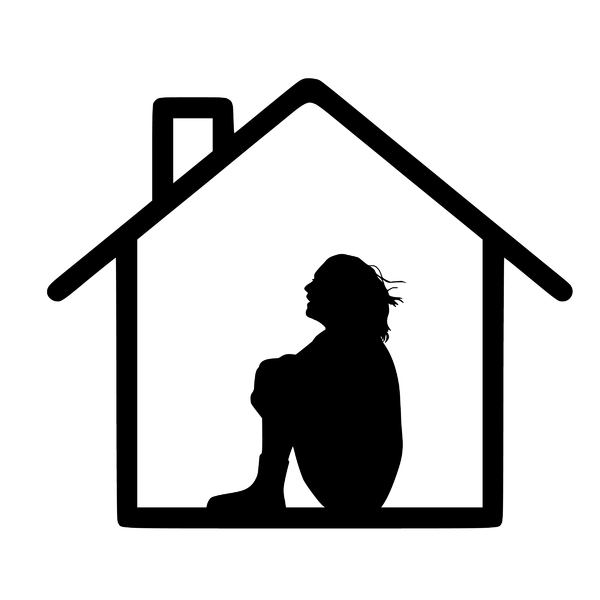Introduction
Anxiety is a natural and healthy feeling. Economic conditions put us under stress, and becomes a medical condition. Anxiety disorders affect millions of people all over the globe. Worldwide it is one of the most common mental illnesses. A high percentage of people with an anxiety disorder receive treatment.
How common are anxiety disorders?
- Anxiety touches everyone at some point in their lives.
- One in 20 people, anxiety reaches a high distressing level.
- Women are prone to anxiety disorder twice as men.
- Anxiety disorders grow in late teens or prime adulthood.
- Anxiety can become a mental health illness when it’s long-lasting,
What is an Anxiety Disorder?
Anxiety is a natural human emotion. People get nervous when confronted with problems at work. Anxious people struggle in life.
An anxiety disorder can become a grave mental illness. People suffering from anxiety disorders react to certain things with fright. Physical signs of anxiety include a pounding heart and sweating.
People with permanent anxiety disorders have continuous worries and fears. An anxious person cannot control his response and is tense.
What are the Types of Anxiety Disorders?
Acute or ongoing stress can change the balance of chemicals in the brain. Mood swings are common in anxious people. Studies have shown that anxiety disorders are inborn. Certain factors, like childhood abuse, may trigger an anxiety disorder.
Types of Anxiety Disorders
Panic Disorder.
People with this disorder panic. Symptoms include sweating, chest pain, and irregular heartbeats. Red Dragon Kratom is a herbal medicine that reduces anxieties, kratom krush sells it for an amazing price.
Post-Traumatic Stress Disorder (PTSD)
PTSD can occur after a traumatic and terrifying event. Incidents can be a physical assault or the death of a loved one. People with PTSD suffer from long-lasting stress, and they stay numb.
Social Anxiety Disorder:
Its distinctive features include nervous feelings. They dislike crowds and become withdrawn.
Generalized Anxiety Disorder.
A person with GAD is all the time worried. Nobody knows the exact cause of GAD. The brain plays an important part.
Specific Phobias
A specific phobia is a deep fear of a thing or situation. Dreads like fear of spiders, heights, or flying. Minor incidents become big worries.
Separation Anxiety Disorder:
Children get lonesome and start to cry. They assume their parents have abandoned them. People who have gone through stressful life events face this disorder.
Obsessive-Compulsive Disorder
This condition involves obsessions and compulsions. Patient has impulsive behavior. Unable to control his thoughts.
What Causes Anxiety Disorders?
Causes of anxiety disorders are difficult to predict. The behavior of a person depends on his shortcomings or poor education. Life and surrounding stresses may cause obsession.
Treatment:
Treatment is a combination of therapies and medication. Alcohol abuse and depression have a powerful effect on mental health. Establish the underlying cause, and start the treatment. You can order Canada drugs online to save money on your treatment medication.
- Self-Treatment
Yoga meditation can reduce anxiety disorder. Exercises do help. The person himself can cope with physical movements.
- Stress Management:
Learning how to cope with stress can help limit potential causes. Prepare a list of overwhelming tasks and try to manage them. Taking time off from study or work will decrease the burden of stress.
- Relaxation Techniques:
Physical activity helps to calm down the person. Techniques like meditation, deep breathing exercises do help. Yoga and long baths can defuse the tension. kratom krush is a herbal tea that will reduce pain and relaxes, and Improve Sleep.
- Exercises to promote Constructive Thoughts:
Morning walk and a little physical exercise can do wonders. Keeping oneself busy and doing home chores keep the brain active.
- Support Network:
Friendship and family members can decrease tension. Playgroups, club friends are supportive. Crucial thing to do is to make this into a habit. Advice from friends will help in solving problems. Seeing each other behavior can bring a positive change.
What are the Symptoms of an Anxiety Disorder?
Symptoms differ depending on the nature of anxiety disorder. Below are the general symptoms of anxiety:
- Feelings of panic, fear, and uneasiness.
- Wild, obsessive thoughts.
- Repeated thoughts or flashbacks of traumatic experiences.
- Nightmares
- Sacred behaviors, such as repeated hand washing.
- Problems sleeping.
- Cold or sweaty hands.
- Shortness of breath.
- Palpitations.
- Failure to stay calm.
- Dry mouth.
- Numbness of hands and feet.
- Nausea
- Muscle tension.
Conclusion
Talk to your doctor regarding your symptoms. The doctor will do a physical check, and take your health history. Consultant will probe into the underlying issue. He may refer you to a mental health specialist. A psychiatrist or psychologist can be beneficial.
Apply various strategies to manage anxiety. Different patients have different issues. It takes time to find the plan that works best for you. But keep in mind, if your unrest is proving difficult. Seek support from an expert.
Treatment is a lengthy process. Physical therapy and medication can take some time to work. A healthy lifestyle can help combat anxiety. Make sure to get enough rest and exercise. Eat a healthy diet, and go to family and friends who you need for support.

